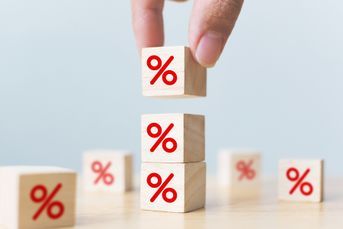Closures of ESG ETFs pick up amid political backlash

Thirty-six sustainable ETFs were liquidated in the Americas last year, more than double the prior year.
Interest in sustainable investing has taken a back seat in the past year after the the environmental, social and governance strategy found itself enmeshed in a political storm.
The dwindling demand is evident in the Americas from the slowdown in sales of new exchange-traded funds and the pickup in fund closures and outflows, according to Shaheen Contractor, senior ESG strategist at Bloomberg Intelligence. In 2023, the region saw just 48 new ETFs introduced, down from 104 in 2022 and 125 in 2021, data compiled by Bloomberg Intelligence show.
“ESG ETF launches will likely keep slowing as political turmoil and changing regulations cause asset managers to pause,” Contractor wrote in a research note.
A net $4.3 billion was pulled last year from ESG-focused ETFs in the US, marking the first-ever annual outflows. The $13 billion iShares ESG Aware MSCI USA ETF (ESGU), the largest ESG-focused ETF, is seeing continued outflows this year, with $809 million yanked from the fund after a $9 billion exodus last year.
Meanwhile, 36 ESG-labeled ETFs were liquidated in the Americas during 2023, more than double the prior year, data from Bloomberg Intelligence show. Almost 60% of the funds that were closed were actively managed.
The trend may worsen this year “if the US backlash against the strategy dims money managers’ expectations for inflows,” Contractor said. During the second half of last year, investment firms focused on marketing more thematic types of funds such as climate-transition offerings, a trend that may continue, she added.
While index-tracking funds still account for almost 90% of ESG-focused ETF assets in the Americas, industry giants including Goldman Sachs Group Inc, BlackRock Inc., Fidelity Investments and JPMorgan Chase & Co are among those with active funds. Median fees for active strategies, however, are almost 70% higher than those for their passive peers, BI data show.
“The main issue I have had with ESG is that the products are extremely similar in exposure to vanilla, passive indices,” said Todd Sohn, ETF and technical strategist at Strategas Securities. “In some cases, you are paying multiples more in fees.”
Apart from attempts to differentiate their products and justify hefty expense ratios, fund managers also have resorted to rebranding their ESG-related products to avoid those who decry “woke capitalism.”
The new funds and those that have been rebranded have undergone more careful review given the scrutiny in the past, said Mohit Bajaj, director of ETFs at WallachBeth Capital. For instance, “funds are increasing their screening metrics for companies that they hold,” he said.
[More: Is the honeymoon really over for ESG funds?]
Here’s why tech, health care stocks will lead market higher again in 2024
Learn more about reprints and licensing for this article.








